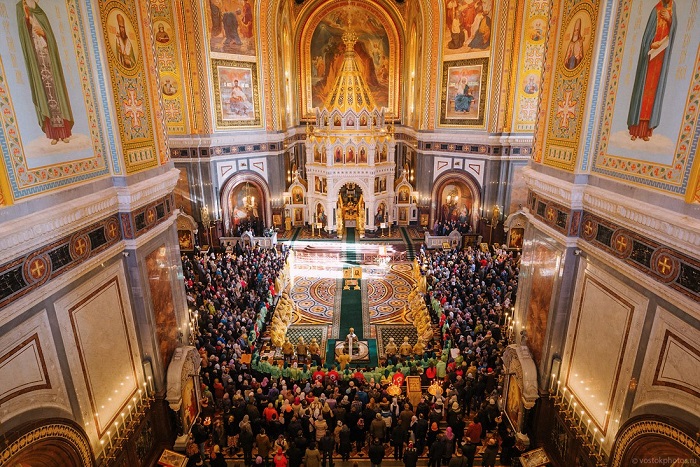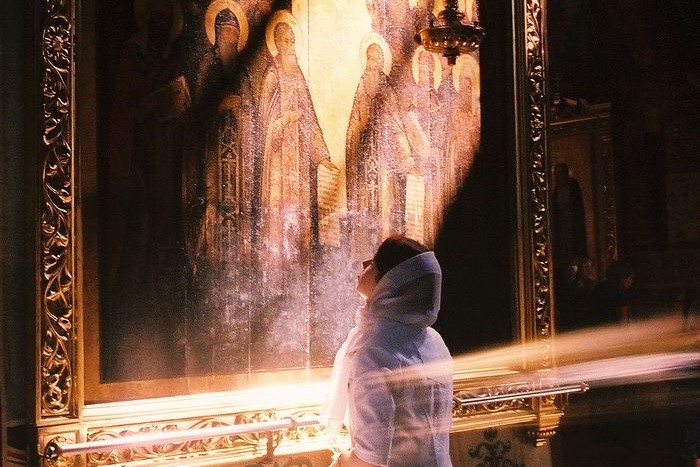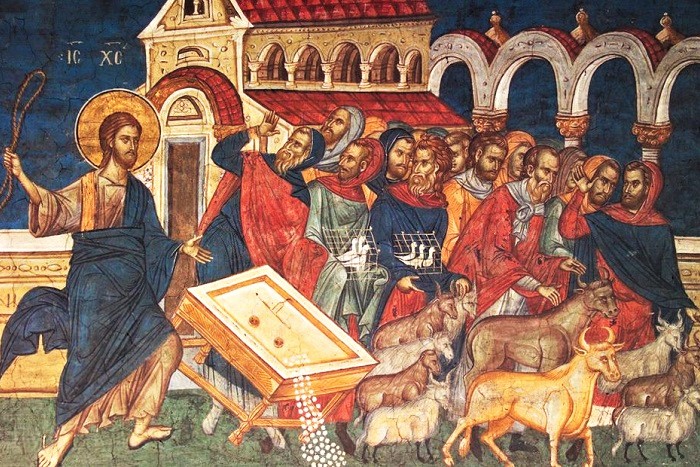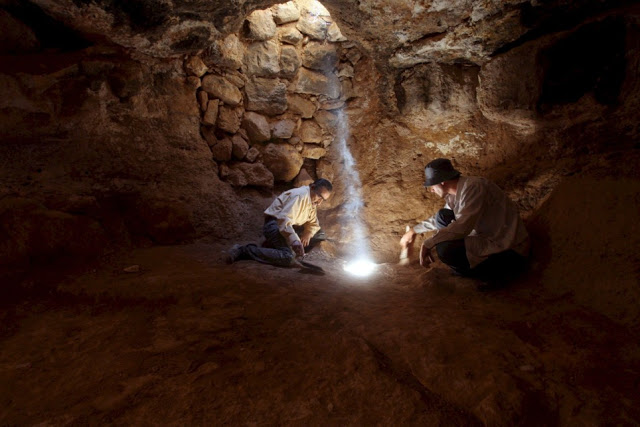
One of the greatest temptations facing the Christian church today is the tendency to mistake religion for faith. The distinguished Orthodox theologian Christos Yannaras writes: “The greatest problem of Christians – and even of the Orthodox – is that they have ‘religionized’ Christianity and have turned the Church into a religion. In this way, they cultivated fundamentalisms, hatreds, divisions, a magical perception and relationship with God, also a competitive disposition of one towards another, and a self-centered view of life.”
Metropolitan Hierotheos of Nafpaktos echos Yannaras’ sentiments when he tells us: “Christianity appeared in the history of mankind as the end of religion and the creation of the experience of the Church. Christ abolished the illness of religion.” Why is the distinction between faith and religion important?
Religion implies the external elements of belief in God — rites, rituals, cultural customs, church laws, physical structures, and a sense of “membership.” We say we “belong” to a particular church. Religion is often identified with an institution or a variety of theologies, all of which are designed, especially in the West, to speak to reason and logic. On the other hand, faith, in Christian terms, is a personal relationship with God, an unseen, ongoing encounter with the Thrice Holy. It requires surrender and humility and personal behavior reflecting this surrender. It is above all, interior – nurtured by prayer, a matter of heart and soul – not logic. It is recognizing the numinous, the “beyond in the midst of our life.” It gives rise not to an institution but to a spiritual fellowship (koinonia) – the Church, which draws its origin from God and its strength from that inner ongoing relationship with Him.

While religion and faith are interrelated, faith always precedes religion. Before religion must come faith. No matter how weak it may be, it must be faith that defines us, not its external definitions and forms. After all, the primary purpose of Church is the healing and cure of our souls, not the mere preservation or expansion of an institution. Yet it can be an emphasis on institution over faith that can cause people to lose focus and stop attending if a vibrant, enthusiastic, personal depth of relationship with God is missing. This causes liturgical rites to become formality, sermons lack inspiration and fire, and eventually the faith community becomes decidedly anemic. This is what Metropolitan Hierotheos calls, again, “the illness of religion.”
Jesus identified His feelings about interior faith versus external religion in the parable of the fig tree in Mark 11:12-17. He has made the long trek to Jerusalem and finds Himself hungry. Seeing a fig tree nearby, lush with leaves, He goes to it only to find that while its external leaves appeared full and inviting, they masked the fact that there was no actual fruit. His hunger was not satisfied. He cursed the tree saying, “May no one ever eat fruit from you again. And his disciples heard it.” (Mk. 11:14)
He left there and went to the Temple where he found the money-changers and others selling goods. He turned over the tables angrily and addressed the offenders: “Is it not written, ‘My house shall be called a house of prayer for all the nations?’ But you have made it a den of thieves.” In each case what Jesus saw was not really what He was supposed to see. It was a front, an appearance which lacked substance. The fig tree and the Temple sellers did not give what they were supposed to – fruit and authentic worship. Instead they provided only barrenness on the one hand and cold commerce on the other.

It was the British philosopher and poet C. S. Lewis who coined the word “Churchianity.” Metropolitan Antony of Sourozh (+2003), of blessed memory, once gave a series of lectures on the Creed which was entitled “Churchianity vs. Christianity.” In that series he addressed the sad fact that it is easy for us to turn the living relationship of faith into mere institutional membership, genuine belief into the rules and regulations of religion, and the truth of discipleship into lofty, “warm-fuzzy” poetry rather than hard nuts-and-bolts action. Of Jesus condemnation of the fig tree, Metropolitan Antony writes: “Had it been barren, leafless, dead, Christ would not have condemned it. He might even have spoken a word of life and brought it into newness. But this tree stood there gloriously adorned with leaves, telling everyone around that it was enough to come up to it in order to find a harvest of ripe fruits. But there was nothing but leaves. The appearance was there; of reality, there was nothing. The words spoken by Christ are frightening.”
When we favor Churchianity over Christianity, religion over faith, externals over the inner life of belief – we become like that fated fig tree and those Temple sellers. We are not what we promised to be and, therefore, like that fig tree, we will eventually spiritually wither and die. Like the misguided Temple sellers, even prayer will leave our hearts and we risk becoming spiritually cold and numb. Metropolitan Hierotheos of Nafpaktos confronts us with the sobering truth: “Jesus’ coming abolished the illness of religion and created the Church.” In a sense, we have had too much of one and not enough of the other. How can we reverse course?
We need to get our own spiritual house together, to re-order it and reshape it. We may relate to God/Christ more in terms of a religion than in an ongoing, interior relationship. Church for us may be something we go to rather than a lived daily mystery in which we participate every day. We may just go to church out of habit or for cultural reasons, or off and on, oblivious to the fact that a love relationship with God requires commitment, constancy, and faithfulness. What love relationship can last only with an on and off commitment?

Our prayer life may be “hit and run” rather than a daily time not only to speak to God but to listen for His voice in stillness. These things speak to the interior nature of our faith, not just its external expressions. This inner life needs to take priority over everything else – everything else. It is the bedrock of Christian Orthodox identity and the foundation of Orthodox asceticism. It is faith lived as a deeply spiritual love relationship with God. Does your Orthodox Christian faith reflect that personal passion?
It is time for a re-dedication of our lives to Christ. The fire that came upon the first Christians at Pentecost and inspired them to share their experience of Jesus with the rest of the world is the same fire today. They had no church buildings, no written theology, a minimal organizational structure, no committees or elaborate Cathedral liturgies – all they had was a story – about the life and preaching of Jesus the Rabbi from Nazareth and Christ of God. It was a story that was enough to set them ablaze and compel them to bring that wondrous faith to others – often at real personal risk. What about that fire within you? Can you see its light? Can you feel its heat? Is it a passion powerful enough for you to literally redirect and reorganize your life and your lifestyle around Jesus Christ? What answer will you make?



